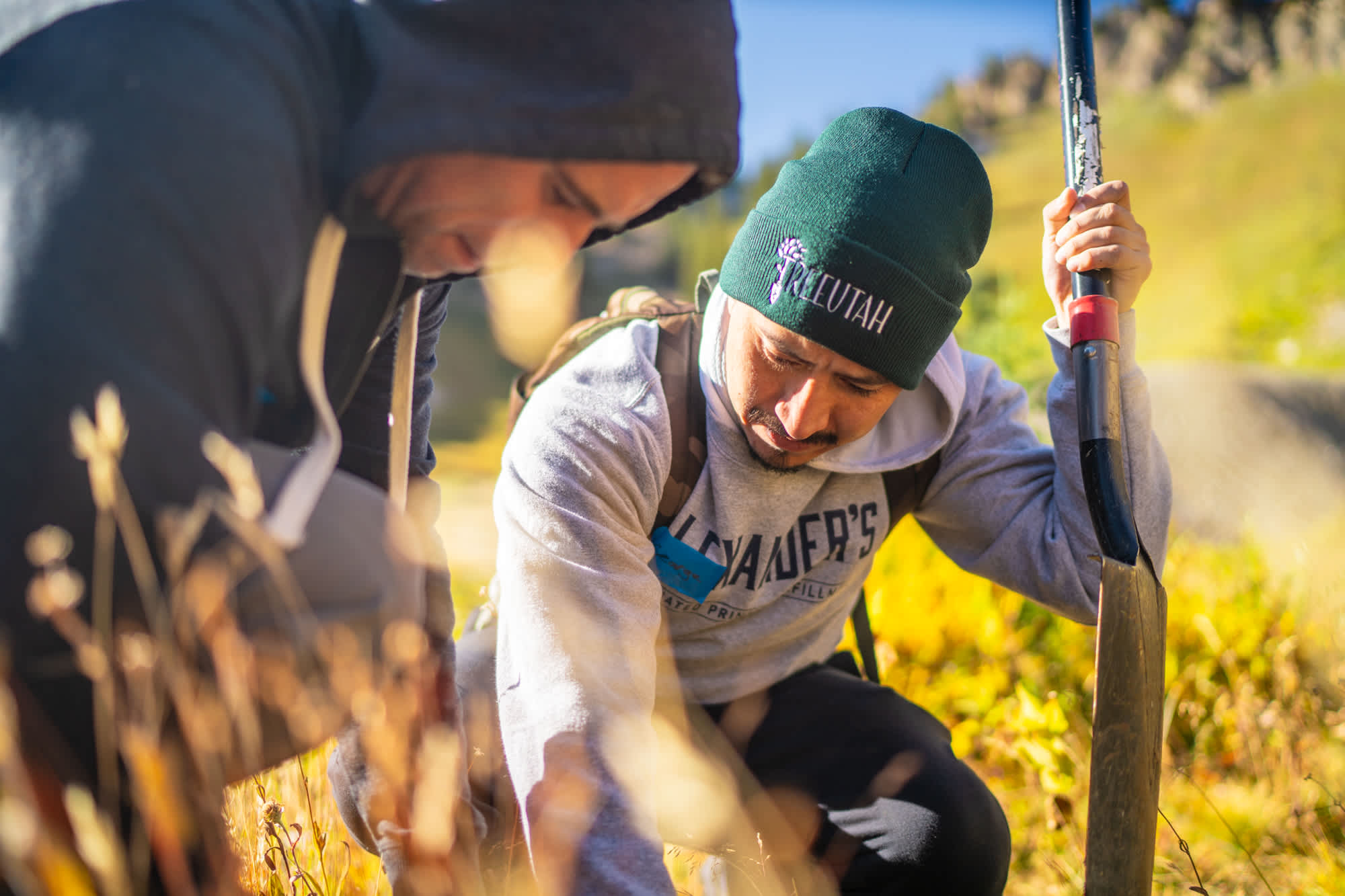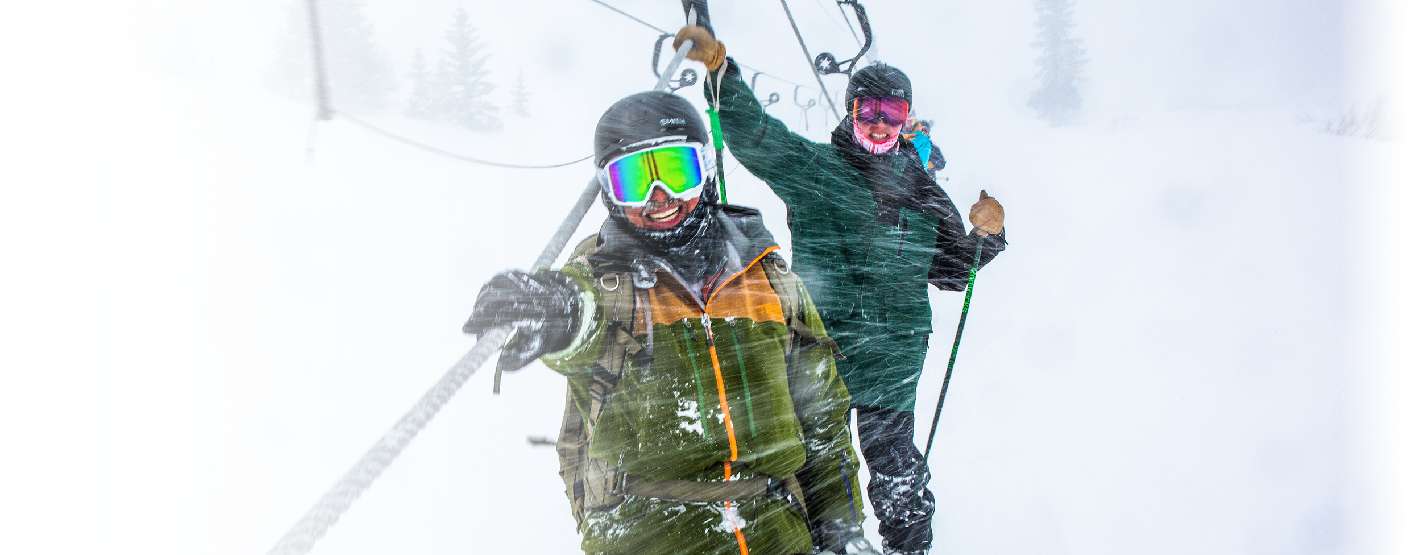Reforesting Alta—One Engelmann Spruce at a Time.
Reforestation Traditions inspired by Alf Engen
Alta Ski Area was built on the remnants of a mining community that left its landscape barren. In the 1930s, Alf Engen joined forces with the Forest Service in search of the perfect place to start a ski area. At that time, Alta was best known for two things: its defunct mining industry and abundant snowfall.
After trekking over Catherine's Pass and dropping into Albion Basin, Alf immediately recognized the area's potential but saw that it needed some TLC. The miners had cleared away the trees that once helped prevent avalanches. His first call to action? Plant some trees! This marked the beginning of Alta's reforestation efforts by the Civilian Conservation Corps (CCC) in 1933. Since then, thousands of trees have been planted across Alta’s slopes.
Left: A denuded Westward Ho in the late 1800s | Photo: Alan Engen Ski History Collection
Right: Westward Ho in November 2022 | Photo: Rocko Menzyk
With the help of community volunteers and partnering organizations, the AEC is able to carry on the tree planting tradition by planting up to 1,500 native trees each summer. Thanks to countless stewards of the land, 43,000 trees have been planted on the slopes of Alta since 1991.
Roots of Restoration
Every summer, the AEC team scouts within Alta for tree stands that have abundant cone production. Then, National Forest Service climbers use these scouted areas to climb into the tallest reaches of the trees and hand-collect cones. After all the seeds are collected, sorted, and cleaned, they're sent to a Forest Service growing facility in Idaho, where they’ll be nurtured for the next year.
Cone selection is based on planning for future restoration efforts, with particular attention to elevation. Usually, tree seed should be collected within approximately 500 feet of its intended planting elevation. This ensures that the genetic makeup of the new trees will be suited for their eventual home. Over the last decade, Engelmann spruce has been the predominant species of focus. This species is known for its resiliency against extreme weather and threats from diseases and pests. With the stress of drought and heat affecting the health of the forest, it's important to choose native trees that can adapt and thrive in our changing climate.
 Volunteer showing off their Engelmann Spruce seedling before planting | Photo: Tyler Struss
Volunteer showing off their Engelmann Spruce seedling before planting | Photo: Tyler Struss
This year, seedlings were planted by volunteers across the mountain in Spring Valley, Watson's Trees, Aggie's Alley, Fred's Trees, EBTrees, and Backside.
Helping Hands Carry on Tradition
Every year, volunteers from all walks of life roll up their sleeves and get their hands dirty as they join us in our reforestation efforts. Some call Alta home, while others are visiting for the first time—this event transforms friendly strangers into family as we all dig in together.


We kicked off this year’s Tree Planting Day with a scenic—yet chilly—lift ride to the top of Collins Gulch. To cover as much ground as possible, volunteers were split into five groups, each armed with about 200 seedlings.
The survival and success of these trees rest in our hands; each one is planted with careful thought and consideration regarding location, elevation, and aspect. Together, we added 800 Engelmann spruce seedlings to the slopes of Alta.
 Volunteers teaming up to carefully plant their seedlings on the Backside | Photo: Tyler Struss
Volunteers teaming up to carefully plant their seedlings on the Backside | Photo: Tyler Struss
Small seedlings with a Big Impact
While we may not see these trees mature in our lifetime, this tradition represents more than planting a few small trees on a big mountainside. It’s about giving back to the place that brings us together while fostering a community dedicated to protecting the land.





Add Your Comment